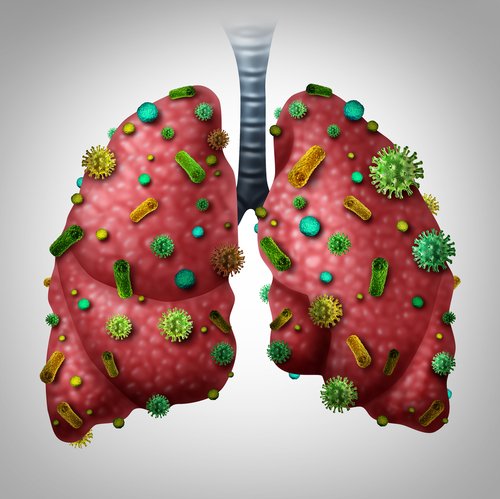SNSP113 Gives Antibiotics More Punch Against Bacteria Often Seen in Cystic Fibrosis, Study Find
Written by |

Synspira’s SNSP113 gives antibiotics more punch against the Burkholderia cepacia infections that cystic fibrosis patients experience, a study reports.
The research, published in PLoS One, was titled “Novel glycopolymer sensitizes Burkholderia cepacia complex isolates from cystic fibrosis patients to tobramycin and meropenem.”
Lung infections caused by Burkholderia cepacia are difficult to treat in CF patients because the bacteria rapidly develop resistance to antibiotics. The result is progressive loss of patients’ lung function.
Burkholderia cepacia “are some of the most difficult to treat infections among persons with cystic fibrosis and can result in permanent loss of pulmonary function and early death,” Dr. John LiPuma, the author of the study, said in a press release. “There is a tremendous need for agents that can actively target [these bacteria] and improve patient outcomes.”
SNSP113 is a polycationic glycopolymers, or PAAG. It works by breaking up proteins present on the surface of bacteria, increasing their susceptibility to antibiotics.
The study showed that inhaled SNSP113 can penetrate bacterial membranes, facilitating the action of antibiotics such as meropenem and tobramycin.
Researchers said the combination therapy was more effective than combinations of the antibiotic ceftazidime against all strains of the bacteria.
“The results published in PLOS ONE demonstrate that our inhaled glycopolymer drug candidate, PAAG, has the potential to significantly enhance the activity of antibiotics that are used for the treatment of lung infections caused by Burkholderia cepacia complex, a relatively uncommon but often fatal infection in cystic fibrosis,” Dr. Shenda Baker, Synspira’s CEO, said in a press release.
“By breaking down the outer membrane of the bacteria, PAAG makes bacteria more susceptible to antibiotics, even in species that were previously resistant to antibiotic therapy. We believe that our formulated drug SNSP113 using PAAG has the potential to address a key unmet need in these types of infections and to be a new approach to the growing problem of antibiotic resistance in pulmonary indications.”
The findings suggested that a combination of SNSP113 and either meropenem or tobramycin could become a reliable way to fight Burkholderia cepacia infections and improve lung function in CF patients.






